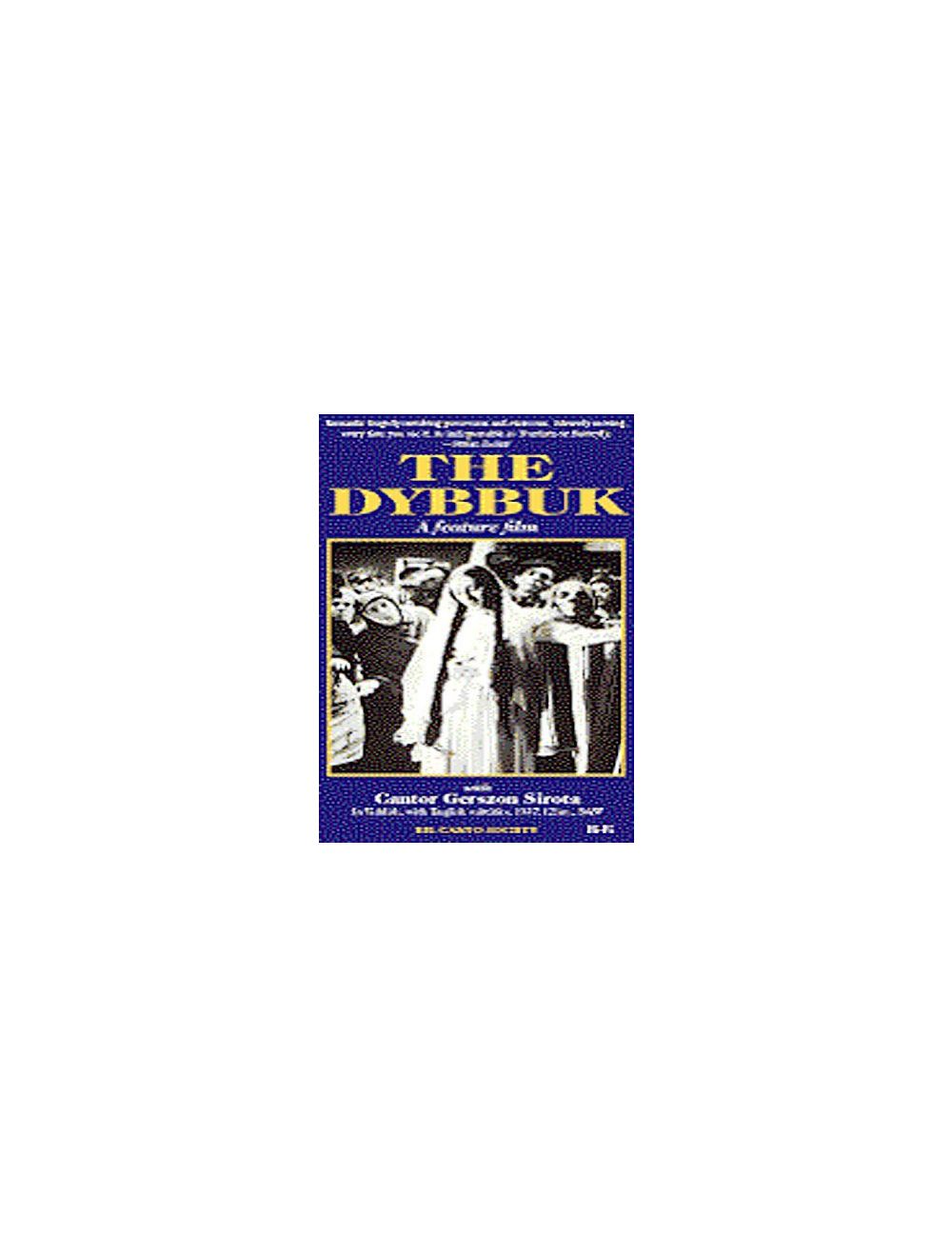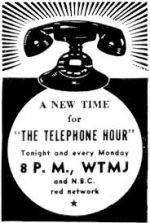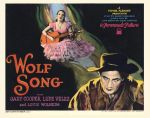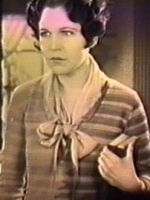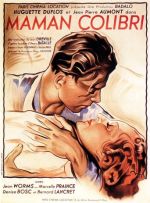The Dybbuk (Der Dibuk) (1937) On DVD
Actor : Avrom Morevski, Ajzyk Samberg, Moyshe Lipman, Lili Liliana, Leon Liebgold
Director: Michal Waszynski
Genre: Performing Arts - Opera
Year: 1937
Studio: Bel Canto Society
Length: 121
Released: January 11, 2005
Rating: Not Rated (MPAA Rating)
Format: DVD
Misc: Black & White
Language:Yiddish
Subtitles : English
DESCRIPTION:
The film is highly stylized. One of the dance sequences is like a Brueghel painting sprung to life; the living mingle with the dead physically and thus emotionally.
When Caruso heard Sirota sing "Celeste Aida" in a concert, he reportedly thanked God the cantor had chosen "to employ his heavenly gift in a different field." Sirota, born in Russia in 1874, officiated as cantor in Odessa, Vilna and Warsaw. He made cantorial recordings, beginning in 1903. From 1927-35, he sang concerts throughout Europe and in the U.S. He and his family perished in the Warsaw ghetto in 1943. In this film he is heard for a few minutes. The Dybbuk was filmed on location in Kazimierz, Poland, and in a Warsaw studio, in 1937.
The Dybbuk is the most widely produced play in the history of Jewish theater. It has been performed in Yiddish, Hebrew, German, Polish, English, Ukranian, Swedish, Bulgarian, Czech, Serbian, French and Japanese.--Stefan Zucker
Actor : Avrom Morevski, Ajzyk Samberg, Moyshe Lipman, Lili Liliana, Leon Liebgold
Director: Michal Waszynski
Genre: Performing Arts - Opera
Year: 1937
Studio: Bel Canto Society
Length: 121
Released: January 11, 2005
Rating: Not Rated (MPAA Rating)
Format: DVD
Misc: Black & White
Language:Yiddish
Subtitles : English
DESCRIPTION:
The film is highly stylized. One of the dance sequences is like a Brueghel painting sprung to life; the living mingle with the dead physically and thus emotionally.
When Caruso heard Sirota sing "Celeste Aida" in a concert, he reportedly thanked God the cantor had chosen "to employ his heavenly gift in a different field." Sirota, born in Russia in 1874, officiated as cantor in Odessa, Vilna and Warsaw. He made cantorial recordings, beginning in 1903. From 1927-35, he sang concerts throughout Europe and in the U.S. He and his family perished in the Warsaw ghetto in 1943. In this film he is heard for a few minutes. The Dybbuk was filmed on location in Kazimierz, Poland, and in a Warsaw studio, in 1937.
The Dybbuk is the most widely produced play in the history of Jewish theater. It has been performed in Yiddish, Hebrew, German, Polish, English, Ukranian, Swedish, Bulgarian, Czech, Serbian, French and Japanese.--Stefan Zucker
| Product Name | The Dybbuk (Der Dibuk) (1937) On DVD |
|---|---|
| This item is returnable | No |

